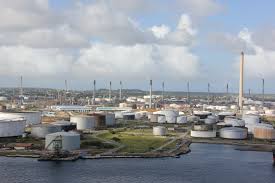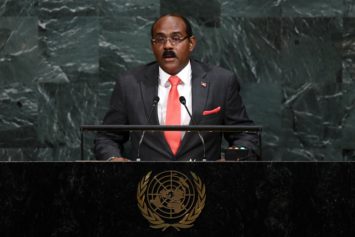
Venezuela’s ambassador to Antigua, Carlos Perez, announced last week that Caracas was at an advanced stage of negotiations with the government in St. John’s to build an oil refinery on the tiny 108-square-mile island.
“The pending negotiations for the oil refinery, I believe are well advanced and we’re hoping with this new administration of Prime Minister [Gaston] Browne we will advance to conclude that project that will be beneficial for Antigua and for Venezuela too,” Perez said.
Brown’s Antigua and Barbuda Labour Party won General Elections on June 12 after 10 years in opposition.
Environmentalists, including Dominican Arthurton Martin, oppose the move and say it’s the worst possible time to make an announcement like this.
“The United Nations Inter-Governmental Panel on Climate Change just released its 2014 report presenting evidence that not only can we expect a two degree centigrade rise in global temperatures but [possibly] a four degree centigrade rise, which will result in significant increases in coastal damage from sea level rise for countries like Antigua that are relatively flat,” Martin told IPS.
“This will in fact result in significant extension of periods of drought as a result of fluctuations in temperature. This is also happening at a time when there are so many options that could deal with part of the energy challenge,” he added.
Martin said the refinery was a bad choice not only because of the global movement to avert catastrophic climate change, but because cleaner alternatives are readily available.
Read more at caribbean360.com


